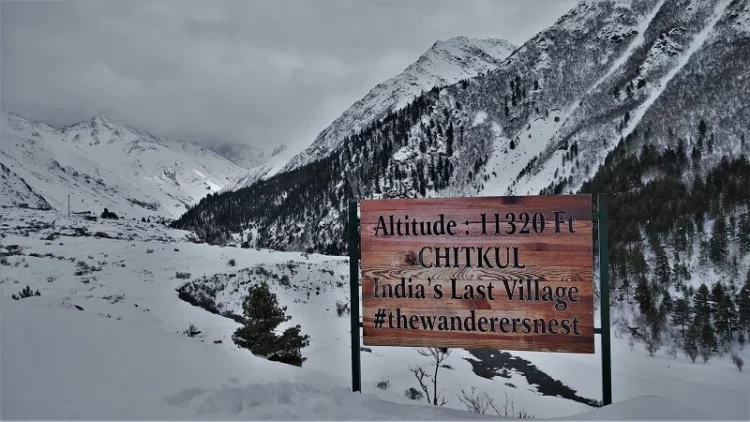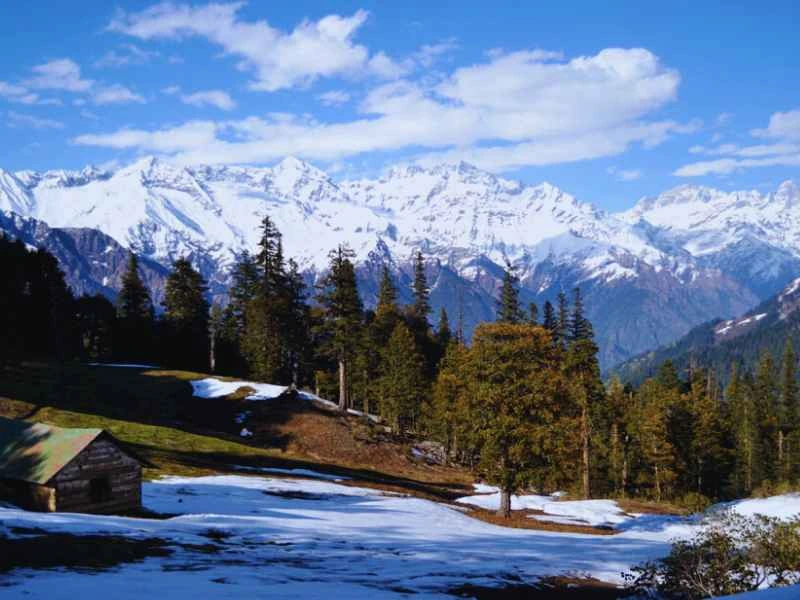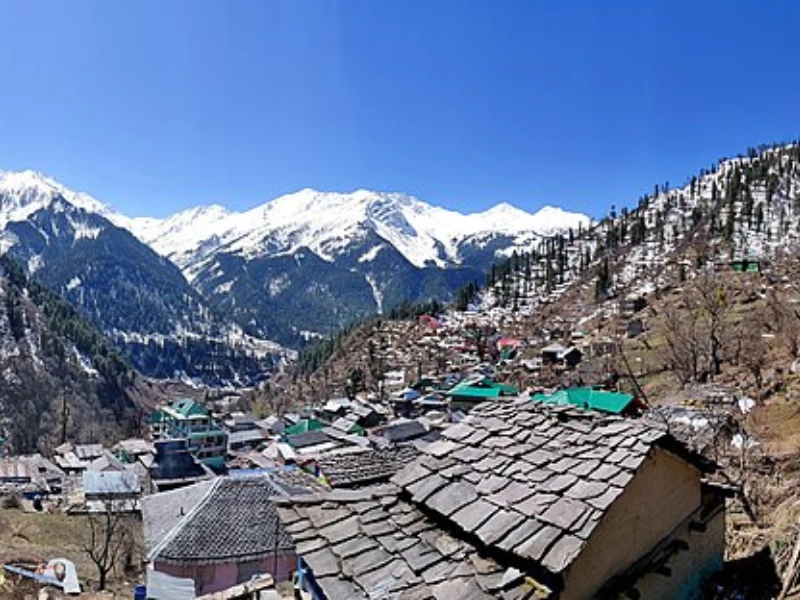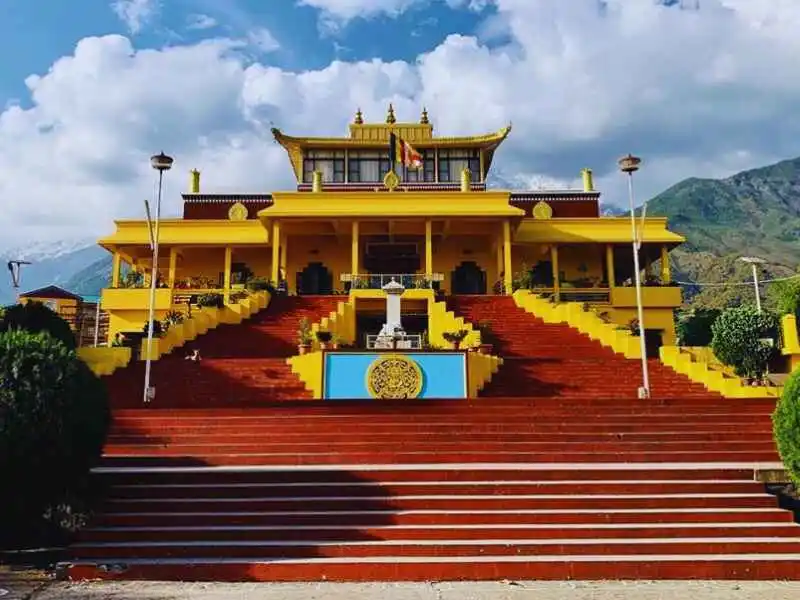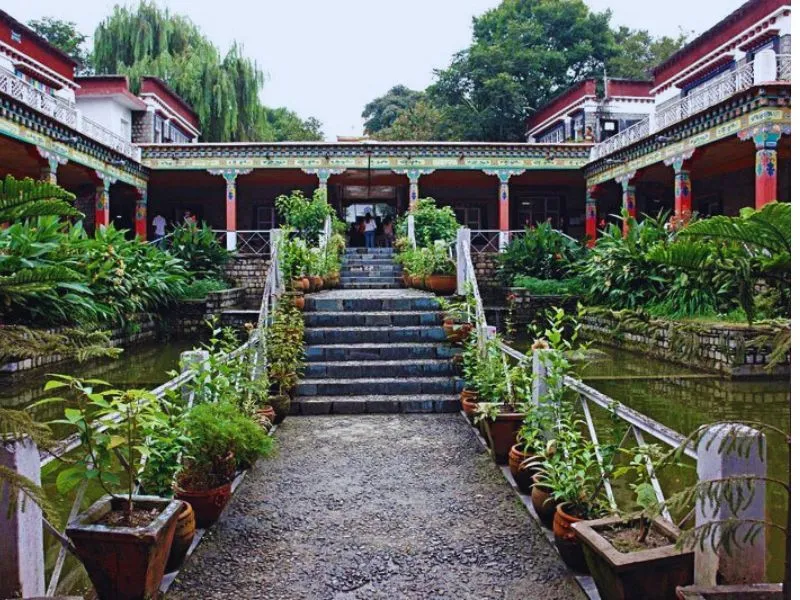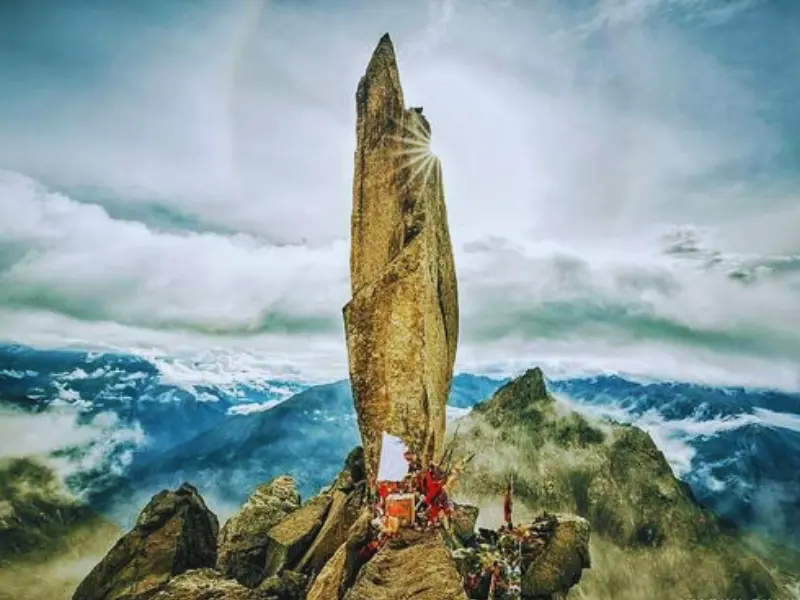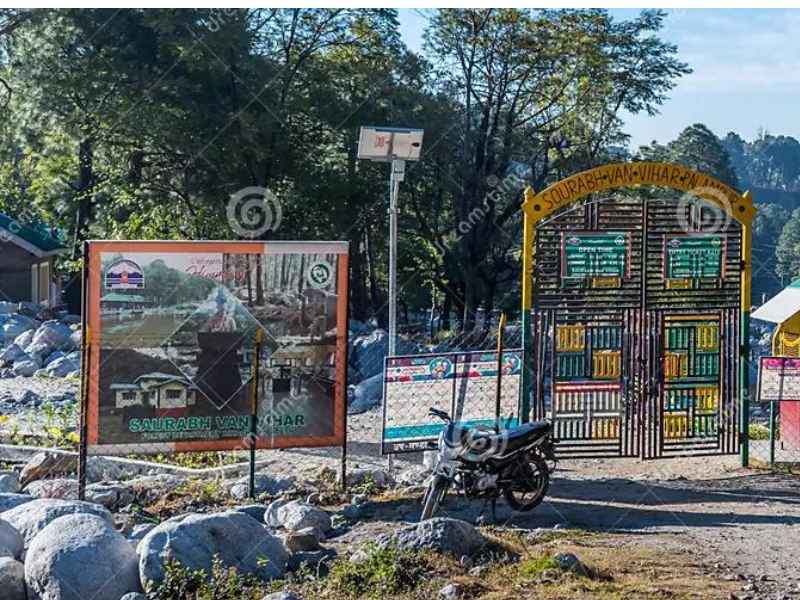Chitkul is the last inhabited settlement on the Indo-Tibetan border in the Kinnaur Valley of Himachal Pradesh. Travellers seeking an unusual Himalayan experience should visit it for its seclusion, tranquillity, and rustic appeal. Chitkul’s idyllic snow-capped mountains and beautiful meadows provide a break from contemporary life. Chitkul is a hidden treasure for wildlife, trekkers, and cultural lovers alike.
Geography and Access
Chitkul lies 11,320 feet (3,450 meters) above sea level in the beautiful Kinnaur Valley. The penultimate settlement on the Hindustan-Tibet trading route, it overlooks the Kinnaur Kailash range and Baspa River.
How to reach Chitkul:
Air: The closest airport to Chitkul via air is Shimla Airport, about 250 kilometres away. Chandigarh Airport (350 km) is handier and more connected.
Train: Kalka, 340 kilometres from Chitkul, is the closest railway station. From Kalka, take a cab or bus to Chitkul.
Road: You may drive or take a cab to Chitkul, which is well-connected. Chitkul is 22 kilometres from Sangla, served by Shimla and Reckong Peo buses.
The ideal time to visit Chitkul is from March to June and September to November. Summer is lovely, but early October sees the valley painted in bright colours. Winter (December–February) brings severe snowfall, cutting off the settlement and making travel impossible.
Natural Beauty and Landscape of Chitkul
The snow-capped summits, lush pine woods, and beautiful Baspa River make Chitkul a stunning environment. Mountain ranges surround the hamlet, providing a seasonal panorama. Alpine meadows, orchards, and uncommon species like the Himalayan black bear and musk deer thrive in the area.
Chitkul is heaven for hikers and environment enthusiasts. The unspoiled beauty and clean mountain air make it a place to relax and reconnect with nature.
Cultural and Historical Importance
Chitkul is known for its Kinnauri culture and natural beauty. Most Tibetan villages practise a unique blend of Hinduism and Buddhism. Mathi Devi Temple, devoted to the local deity, has elaborate wooden carvings and represents the region’s spiritual heritage.
Caravans trade wool and other items via Chitkul on the historic Indo-Tibetan trade route. Traditional wooden buildings with sloping roofs and complex patterns show the village’s old heritage.
Activities in Chitkul
Village exploration: Walk through Chitkul’s small streets and meet the friendly residents. Their simplicity and hospitality will be remembered.
Baspa River: Relax by the tranquil Baspa River and listen to the rushing water against snow-capped hills.
Trekking: Chitkul starts many paths, including the famed Ranikanda trip. Adventurers will love the hikes’ stunning sights.
Camping: Set up a tent at a riverside campground and enjoy nature.
Photography: Chitkul’s morning mountain glow and starry night sky are photographers’ paradise.
Nearby Attractions
Sangla Valley: Beautiful apple orchards and beautiful vegetation await 22 miles from Chitkul.
Rakcham Village: For those who want to explore unspoiled areas, Rakcham settlement is a charming settlement between Sangla and Chitkul.
Kinnaur Kailash Range: Hindus worship this peak, seen from Chitkul, which provides beautiful vistas on clear days.
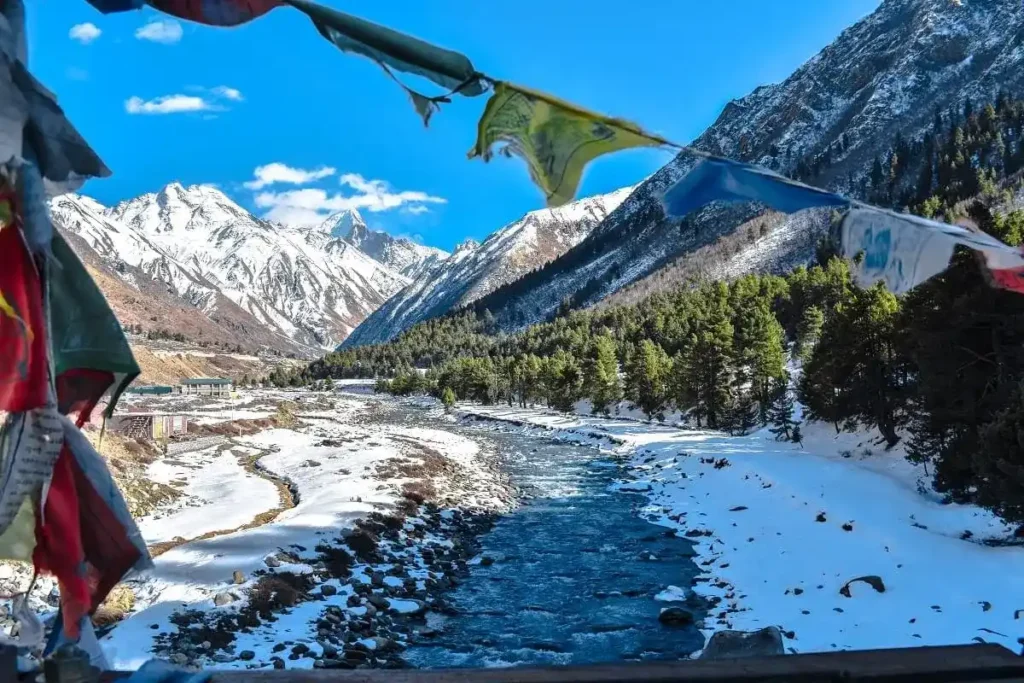
Outdoor Adventures
Trekking & Hiking: The Chitkul to Ranikanda trip is a popular one through stunning scenery.
Camping by the River: Nothing beats camping beneath the stars by the Baspa River surrounded by peaks.
Fishing: Trout fishing on the Baspa River is tranquil and satisfying.
Chitkul Accommodations
Chitkul has everything from modest guesthouses to cosy homestays that provide visitors a true local experience.
Guesthouses: Cheap and cosy guesthouses are ideal for budget travellers.
Homestays: Homestays with Kinnauri families let you experience local culture.
Camping: Camp at a picturesque riverside campground for adventure.
For more lodging alternatives, Sangla is nearby.
Local food and culture
The modest, flavourful food of Chitkul reflects its Himalayan traditions. You should try Himachali foods like siddu, thukpa, and chana madra.
Cafes and restaurants with mountain views provide a cosy eating experience. To fully experience local culture, drink chhang, a barley-based alcoholic beverage.
Practical Tips to visit Chitkul:
Packing Essentials: High altitude makes Chitkul’s temperatures drop swiftly. Bring warm clothing, sturdy shoes, and medicines.
Local Customs: Respect local customs and traditions—the folks are kind.
Connectivity: There are no ATMs and limited mobile networks, so bring cash and alert loved ones of probable connection concerns.
Also Read: Saurabh Van Vihar: A Serene Escape in the Heart of Palampur
Conclusion
Chitkul is one of Himachal Pradesh’s most pristine and quiet villages, providing natural beauty, cultural richness, and adventure. Chitkul appears to stop time while you’re hiking, camping, or just enjoying the scenery. Explore this hidden treasure before it gets commercialised as tourism expands.
Pack your baggage and visit Chitkul to see one of India’s remaining frontiers.
Frequently Asked Questions (FAQs)
The last inhabited settlement along the Indo-Tibetan border, Chitkul is famous for its natural beauty.
Locals speak Hindi and Kinnauri.
The China-Tibet border is 90 kilometres from Chitkul.
Baspa River passes through Chitkul.
Some travellers may encounter moderate altitude sickness due to the high altitude.
Yes, Chitkul gets considerable snow in winter.
